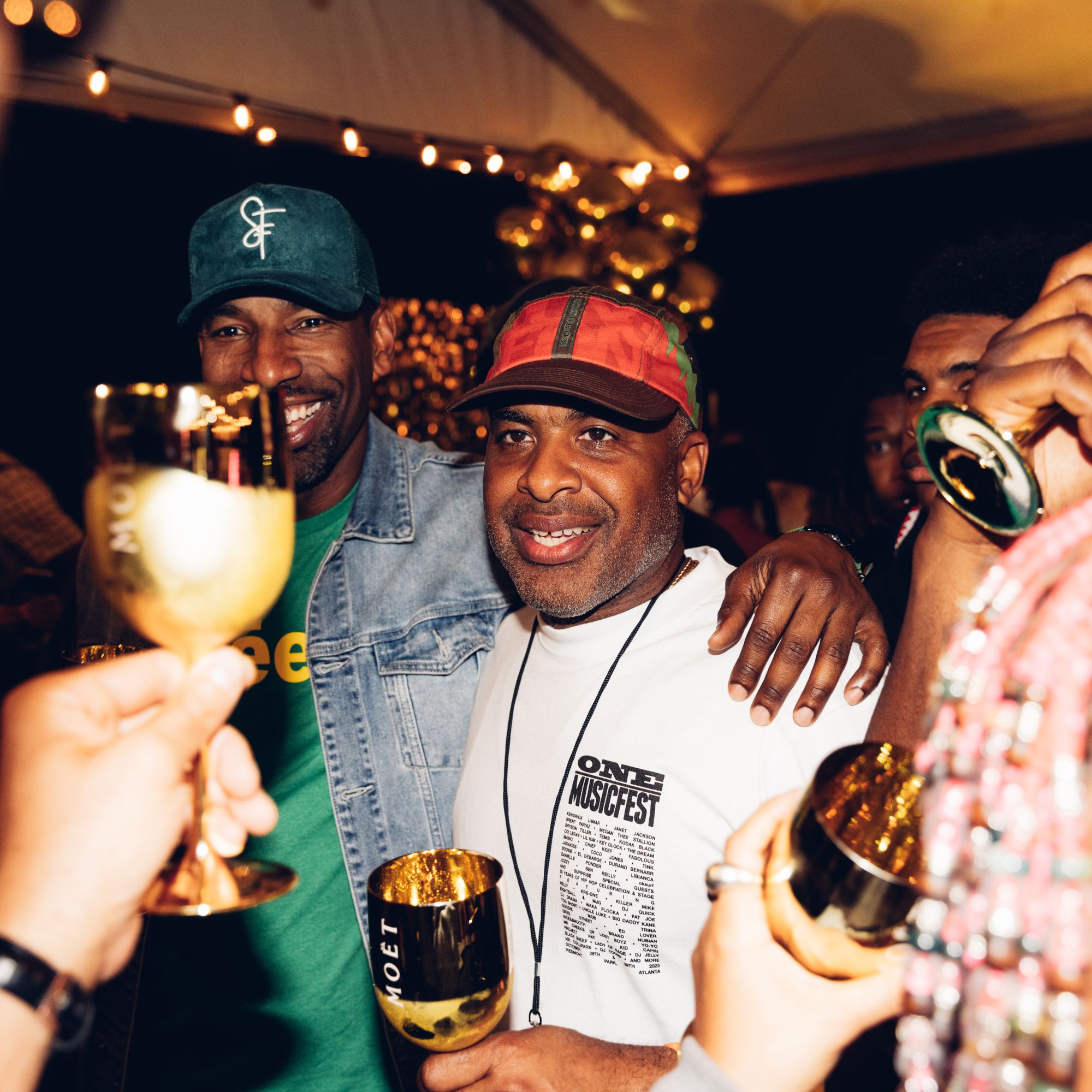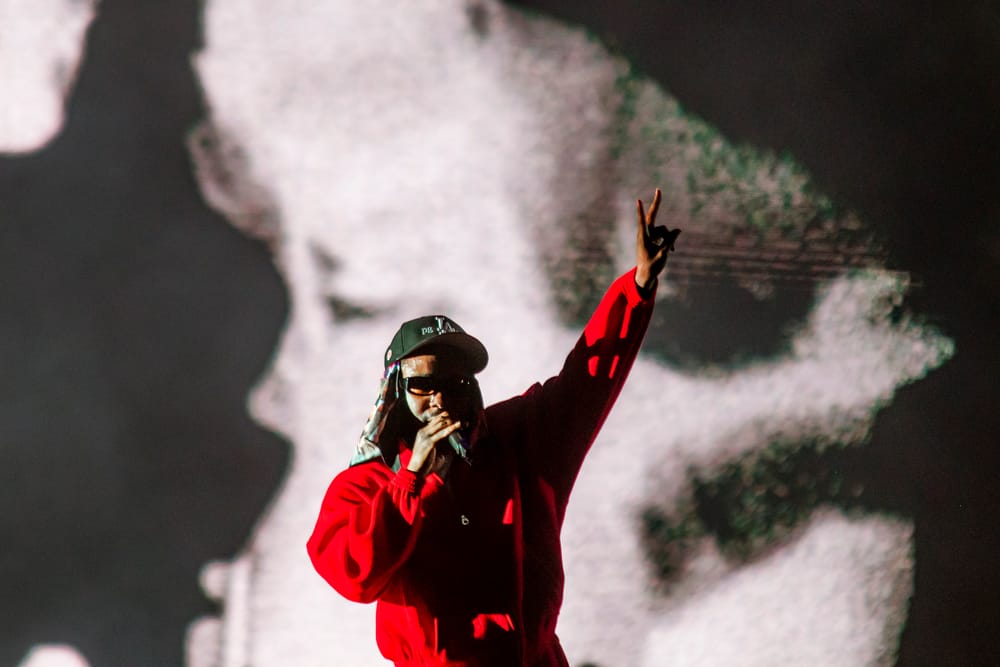"Where, other than HBCUs, can we have these safe spaces where we can build, develop, exchange, and enjoy our culture?” asks Jason “J” Carter, founder of One MusicFest, which is one of America’s only Black-led music festivals.
For Atlanta concertgoers, the question is not rhetorical. Since launching in 2010, One MusicFest has become a city tradition. A homecoming of sorts, growing from a small block party to an annual festival with multiple stages, sponsored activations, and attendances that have reached an estimated 100,000 people. This year, Kendrick Lamar, Janet Jackson, Megan Thee Stallion, Brent Faiyaz, Bryson Tiller, T-Pain, Tems, and many more reigned over Piedmont Park during the final week of October.
"I talked to someone at a bigger organization about the idea; for whatever reason, he didn’t feel folks of color would want to go to a multi-genre music experience."
Carter knew since the festival’s inception that it’d be an ideal space for kinship, networking, creativity, and plain-old dancing and fun—a place where you bump into a college homie, your favorite soul food vendor, or a potential future business (or romantic) partner. In this musical scene, R&B collides with trap music, alternative hip-hop, afrobeat, and reggae. Like hip-hop itself, Carter rang in 50 earlier this year, and that cultural celebration was as apparent in the programming (Big Daddy Kane, Brand Nubian, KRS-One, Goodie Mob) as it was the branded pop-ups (Sprite’s on-site “recording booth”).
Just because the objective has always been crystal clear to Carter doesn’t mean others could initially see the vision. Or that building a franchise—with ambitions of expanding to other cities—has been without challenges along the way. In an archival interview with LEVEL, Carter discussed how the festival came to be, how he spots up-and-coming artists, and the challenges of being an entrepreneur in the festival space. —As told to Amayah Spence

Before One MusicFest, there was a lack of programming around urban music. When I visited other festivals, it was a hell of an experience—it just didn’t really speak to my specific culture. My culture was up on that stage, not so much in the audience. So I thought, “How do we create an experience like that, but have it be more culturally relevant to Black and Brown folks?”
It’s so necessary to continuously create these safe spaces where folks of color can exchange. So we said, alright, we’ll do it ourselves. When we started off, I first sought mentorship but there weren’t many people who looked like me that were creating experiences like One MusicFest. I had my direct circle for support. But the larger outlets and companies? They didn’t see it at first. I talked to someone at a bigger organization about the idea; for whatever reason, he didn’t feel folks of color would want to go to a multi-genre music experience. I said, “Well, if I can’t get your support, let me build it myself and see what you guys say then.”
When we created One MusicFest, there was a lot of good music out there that wasn’t being amplified. Part of our plan was to leverage larger artists to help give smaller artists the opportunity to get in front of larger audiences. In 2015, we had SZA, Raury, and the Internet. They were somebodies, but they weren’t mega names yet. We knew they were going to catch, based on the underground buzz they were creating.
"Back in 2014, Kendrick Lamar and Bilal connected backstage, left One MusicFest, and made three songs [together]."
That same year, we had A$AP Rocky and Lauryn Hill. What happens if you put a fan of The Roots in front of the Internet? What happens when you put a Lauryn Hill fan in front of SZA? Will SZA get new fans? Probably.
It creates something not only for the music lover; there’s also a lot of magic that happens when artists are in the same space. We realized we had something special when we saw younger, developing, emerging acts with some of the larger acts all backstage in exchange. It was magical. Back in 2014, Kendrick Lamar and Bilal connected backstage, left One MusicFest, and made three songs [together].
The work is tough, though, especially for an entrepreneur. It [requires] an “eat what you kill” mentality. It can overwhelm you. Family is that balance and safe space. It’s also picking the right partner. My wife knew what she got into before all this stuff kicked off. The same way you plan for meetings, interviews, and Zoom calls, you need to write down the time you’re going to carve out for your family. That’s just as important.
